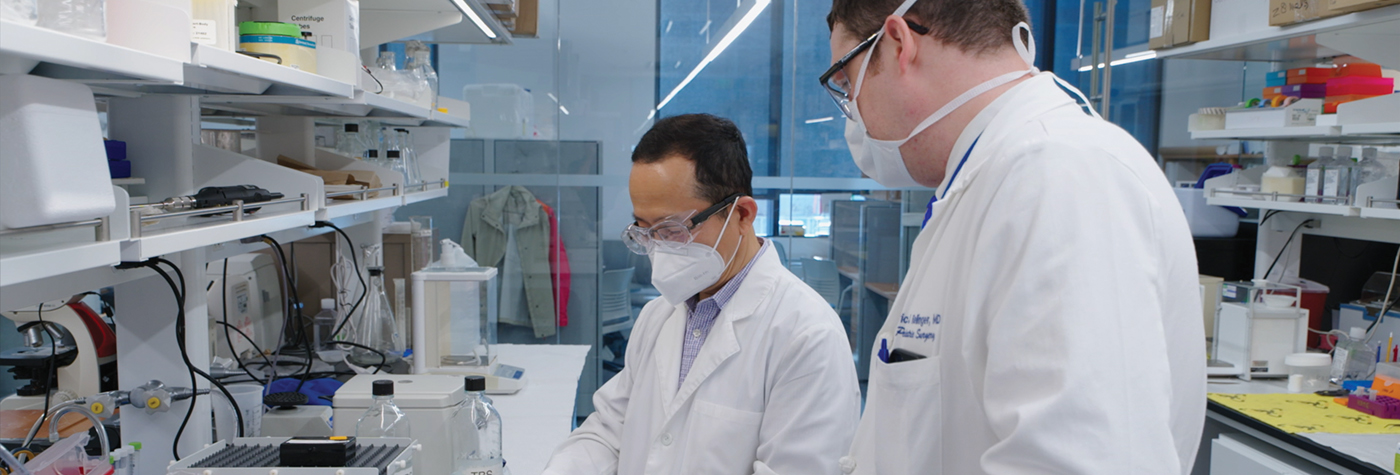Driving new discoveries in metabolic research

An $11.4 million federal COBRE grant supporting the UK Center for Cancer and Metabolism helps pave the way for the treatments – and the researchers – of tomorrow.
An $11.4 million grant will help the University of Kentucky continue critical research into the metabolism of cancer.
UK received the Centers of Biomedical Research Excellence (COBRE) grant from the National Institutes of General Medical Sciences, part of the National Institutes of Health. The money will support work at the UK Center for Cancer and Metabolism (CCM) for the next five years. CCM is dedicated to defining the role metabolism plays in cancer.
Conquering cancer
Kentucky has high rates of cancer and metabolic disorders. It leads the nation in cancer incidence and deaths and has the second highest adult obesity rate in the country. The new grant will further establish CCM as a nationally recognized research center. CCM brings together UK’s experts in cancer and metabolism and junior investigators.
CCM is a vital part of the UK Markey Cancer Center mission to reduce the cancer burden in the Commonwealth and beyond. An $11.2 million phase 1 COBRE grant in 2017 established the CCM at UK. The new COBRE grant is a phase 2 award focused on further improving the CCM infrastructure and continuing to develop a group of investigators with shared interests. The CCM team includes basic and clinical scientists performing leading-edge research on metabolic dysregulation in cancer. The lab discoveries at CCM will pave the way for new treatments for patients.
Supporting junior investigators
COBRE grants promote collaborative work. They also encourage early-stage investigators to compete for additional NIH funding. The grant also gives junior investigators access to:
- State-of-the-art technology
- Mentorships
- Funding for hiring
“Many of these junior investigators need a platform and a lab to exercise their dream in cancer research,” said Dr. Peter Zhou, a professor in the Department of Molecular and Cellular Biochemistry. “The COBRE program provides this really unique platform that gives them the salary support and additional money to recruit students and postdocs, as well as basic science and clinical mentors to help foster their career development.” Zhou co-leads the CCM with program director Daret St. Clair, PhD, professor in the Department of Toxicology and Cancer Biology.
The research at CCM helps junior investigators develop into leaders. “Collaboration and a supportive environment is key to our success with this grant,” St. Clair said. “We are able to recruit top-tier researchers who want to make UK their home.”
Research projects underway
Four junior investigators are leading major projects at CCM. Teams of UK clinicians and scientists serve as mentors for the junior researchers. The research covers:
Development of a new microscope Caigang Zhu, PhD, Department of Biomedical Engineering, UK College of Engineering
- Development of a special metabolic microscope
- Research into why some head and neck cancers are resistant to radiation
Pediatric neuroblastoma
Eric Rellinger, MD, Division of Pediatric Surgery, UK College of Medicine
- Research on the metabolism of neuroblastoma in children
- Investigation of potential new treatments that are less aggressive
Preventing the spread of breast cancer
Xia Liu, PhD, Department of Toxicology and Cancer Biology, UK College of Medicine
- Research into breast cancer metastasis and metabolism
- Ways to prevent the cancer from spreading
Prostate cancer treatment
Will Fong, PhD, Department of Toxicology and Cancer Biology, UK College of Medicine
- Understanding why people with prostate cancer often become resistant to standard therapies
A lasting impact
Having funds for hiring is vital, Liu said, as is the support of clinical and research faculty. “Mentorship is really important for our junior faculty,” she said. “It helps us to guide our project progress… and also helps us to write grants.”
The grant provided Fong with the high-end imaging and instruments he needs to do his research. “COBRE funding provides the hardware and the software to drive the success of my project,” he said.
“It’s been enormously impactful in enhancing the folks that I get to work with, the tools I get to use and the impact that this research is going to achieve over the next several years.”
Dr. Eric Rellinger
The COBRE grant will make a difference for cancer treatment. “It’s been enormously impactful in enhancing the folks that I get to work with, the tools I get to use,” Rellinger said, “and the impact that this research is going to achieve over the next several years.”




